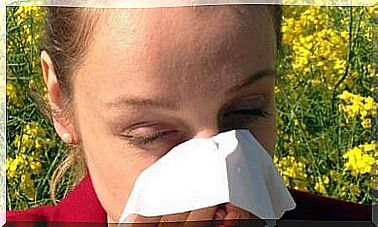Environmentalists Call For Pesticides To Be Cut In Half
The Spanish government does not have a plan to reduce the use of dangerous pesticides. While France intends to reduce them by half in 2025, in our country their consumption increases by 5% each year.

Spain is the second agricultural economy in Europe, but it is the country that consumes the most pesticides and the most Round-Up (glyphosate), which was listed by the WHO as a possible carcinogen in 2015 and is receiving convictions in the United States for its relationship with cancer cases.
There has been a European directive on the sustainable use of pesticides (if this were possible) since 2009, but in our country we increase its use by 5% every year and we do not respect the prohibition of aerial spraying of crops.
Ecologists in Action asks for 50% less pesticides
The Ecologistas en Acción organization has sent its Proposals to Save the Planet to political groups asking them to reduce pesticides by at least 50% by 2023, something that Denmark has already done and that France aspires to achieve in 2025.
The plan designed by the Spanish government is poor, with superficial objectives that do not bring significant changes to reduce pesticides in our country, they criticized. Environmentalists believe that the European directive should be more forceful and impose on all countries a certain quota of pesticide reduction, a period of time to comply with it and sanctions for those who do not.
Nor has Spain implemented a system to collect information on poisonings due to the use or ingestion of pesticides – it causes 200,000 a year throughout the world – or to recycle dangerous pesticide containers (only 56% is recovered).
To reduce the consumption of pesticides, the European Union recommends a long crop rotation of 6, 7 or 8 years, use agricultural varieties resistant to pests and only use pesticides if there is no other less harmful solution.
Endocrine disruptors in pesticides, a danger
Many pesticides are endocrine disruptors – hormone disruptors – and promote diseases such as diabetes, metabolic diseases, thyroid problems, obesity, infertility, and cancer.
The problem is that we do not ingest just one pesticide but many in each food and the effect of this “cocktail” is not known. There is no minimum safe dose, since they work like our hormones: at infinitesimal levels.
That is why “the authorities are not protecting health,” according to Pilar Galindo, member of the Spanish Society of Ecological Agriculture (SEAE).
Insects are the most affected animals
Pesticides are not just a risk to people’s health. They are also a threat to biodiversity. Insects are the living beings that are declining the most, especially pollinators.
“Today there are already 76% fewer flying insects in the world and a third are in danger of extinction, all of which may disappear in a century,” explained Koldo Hernández, head of the toxic campaign of Ecologistas en Acción, echoing of the results of the meta-analysis of Professor Francisco Sánchez-Bayo, from the University of Sydney (Australia). “Without insects there is no future for agriculture,” he added.









